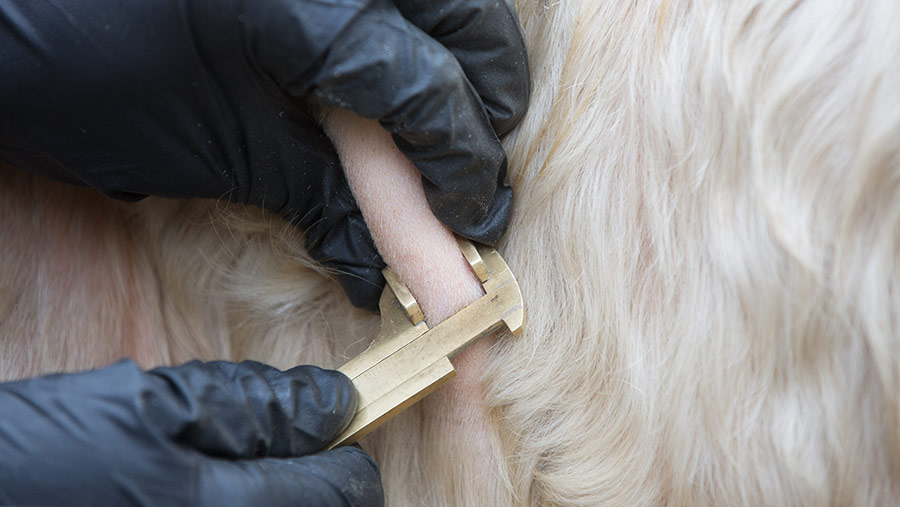How will TB tests work during the coronavirus pandemic?
 © Tim Scrivener
© Tim Scrivener Farms that don’t complete TB tests in their allocated testing window during the coronavirus lockdown are to be placed under movement restriction despite officials admitting delays to some herd testing is “inevitable’’.
However, those that miss tests due to the coronavirus won’t incur Basic Payment Scheme (BPS) penalties or be subject to reduced compensation, the Animal and Plant Health Agency (Apha) has said.
It has issued new guidance to vets and farmers to provide clarity on forthcoming TB tests.
Testing is continuing as normal, it says, but with additional biosecurity and personal protection measures.
See also: Coronavirus: Traders only at livestock marts, say auctioneers
However, as the virus spreads and more farmers and vets either contract Covid-19 or self-isolate, Apha suggests delays to some tests may be unavoidable.
It warns, however, that the situation must not affect disease control.
This means restrictions will be applied to farms that don’t complete their test in their defined window and their Officially TB Free (OTF) status will be withdrawn.
With some vet practices not having enough staff to carry out the tests, following school closures and official veterinarians needing to self-isolate, this could affect farms more widely in the coming weeks.
Apha is advising practices to “make the best decisions you can under the circumstances’’ to enable as much of the testing to be carried out as possible.
See more on statutory TB testing of cattle in GB during the COVID-19 pandemic on TBhub.
Financial implications
Farmers, it says, won’t lose BPS cash through cross-compliance penalties, if “all reasonable endeavours’’ are made to complete the test within the specified window and there are genuine mitigating circumstances.
And neither will there be a reduction in compensation paid for any cows that test as reactors when the overdue test is eventually completed.
“It is recognised that each situation will be different and while most will be resolved by sensible discussion between the official veterinarian and the owner/keeper, there are likely to be cases that are more difficult to resolve, and advice should be sort from senior staff in Apha or veterinary delivery partners,” said Apha.
Wales
In Wales, the Welsh government says the need for farm visits will “continually be reviewed” as the situation develops.
“In a time of public health emergency, it is essential that we do not allow other diseases that affect people or animals to get out of control,’’ said a spokesperson.
“Any outbreak can have a devastating effect on industry, rural communities and the economy of Wales.’’
To protect farmers, staff and vets during the coronavirus crisis, Apha has issued guidance:
- Vets should have no face-to-face contact with farmers or farmworkers who have self-declared symptoms of Covid-19 within the previous seven days
- The validity of a farmer’s self-declaration of having symptoms of Covid-19 or needing to self-isolate should not be challenged
- There should be no pressure applied to farmers who are self-isolating because they are in high-risk groups to meet official veterinarians face-to-face – but if they are willing to meet, these meetings should not be discouraged
- If access is difficult, the vet and farmer should try to find an acceptable solution to enable the test to go ahead – this might include the wearing of face masks
